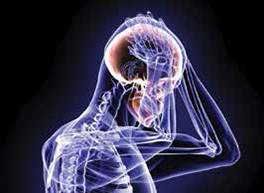
With all the talk about athletes and concussions, one might ask whether everyone recovers similarly from this trauma. Many factors determine how quickly recovery occurs. Concussion is a brain injury caused by a hit to the head or an indirect body blow that leads to the brain moving within the skull, inflicting temporary neurological damage. Typical symptoms include headache, nausea, difficulty concentrating and seeing clearly, memory loss and insomnia.
A return to complete daily activities as usual after a concussion, especially in the first three to five days, affects your ability to heal. Sufficient nighttime sleep and daytime resting are crucial. Avoid physical activity more demanding than walking, and take time off from work because mental activities requiring deep focus affect healing, too.
Trying to shorten your healing time can exacerbate previous symptoms and even cause new ones. Your rate of recovery will depend on the following:
- Number of previous concussions: Having had one or more previous concussions makes you more susceptible to them and typically lengthens recovery time.
- Severity of concussion: Generally, the worse the concussion, the longer the recovery.
- Age: With their still-developing brains, children and teenagers take longer than adults to recover, and their symptoms are often worse. Treatment must be deliberate and conservative, because the brain’s frontal lobes continue to develop until about age 25.
- Gender: Women tend to need more recovery time than do men; girls tend to need more recovery time than do boys.
- Other conditions: People with a history of anxiety, depression, migraine or chronic headache can take longer to recover.
If you have had a concussion, it is imperative that you do not risk incurring another—especially before you have completely recovered. Two concussions too close together—or multiple concussions over time—can cause chronic memory and concentration problems, and might even affect balance.
If you are involved in a profession or sport with a higher-than-normal concussion risk, call us to discuss specific protective measures you can take to prevent suffering one. And if you’ve had a concussion recently, we can help guide your recovery.









